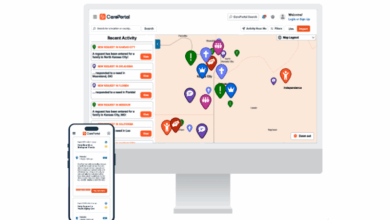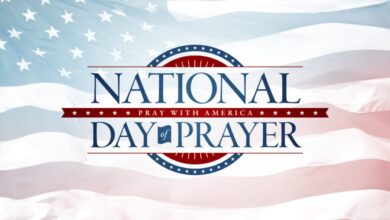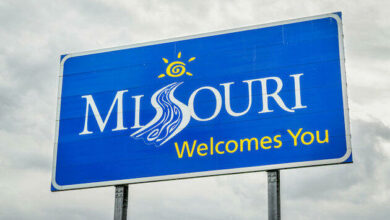Parents tell school district to stay out of sack lunches
Parents of children at a Missouri school are fighting back after the school district announced it was banning fast food from being eaten on campus during school hours. But it appears it’s not about calories. It’s making sure kids don’t feel bad their neighbor has a sack lunch of chicken McNuggets and they don’t.
A terse announcement on the Facebook page of Dear Elementary in the Richmond School District in Richmond, just northeast of Kansas City, stated that “(n)ew board policy states that no fast food is allowed at lunch or during school hours for students.”
The policy, shockingly, means that parents can’t even make choices regarding what their own children bring to school in a sack lunch.
It didn’t take long after the Aug. 15 announcement for the district to start receiving significant backlash.
“At the end of the day, we want to be able to decide on our own,” Chris Swafford, who has five kids in the district and two at Dear Elementary, told WDAF-TV.
“I thought it was overstepping at its finest,” he said. “It’s up to parents what their children eat.”
Swafford also contended that fast food was being made a popular scapegoat, claiming that there wasn’t a whole lot of nutritional difference between some of the bagged lunches that parents give their children and the fast food lunches the school was banning.
Stafford is right. Nutritional standards issued during the Obama administration require lunches each week to average from 550 to 650 calories for kids in elementary school, 600 to 700 calories for those in middle school and 750 to 850 calories for high school students.
Metrovoicenews.com checked the nutritional value of a Happy Meal at McDonalds. We found that chicken nuggets, small fries, apple slices and milk came in at just 405 calories–well below the guidelines and certainly not at a level where it would cause obesity even if eaten on a regular basis. Switch to a burger and it still falls within the range of government guidelines. Typical school tray lunches are allowed to have a whopping 50 percent more calories.
“Just because I don’t personally bring fast food to my children at school doesn’t mean other parents shouldn’t be able to do,” Swafford said.
“Parents’ lives are busy. They sometimes have things going on, and sometimes, grabbing a 10-piece nugget from McDonald’s and taking it to their child shouldn’t be an issue.”
So what’s behind a school district imposing itself on the kitchen of thousands of Richmond school district families?
Richmond School District Superintendent Mike Aytes said that district personnel were too busy to comment on the issue. Parents on Facebook, however, weren’t. School lunches, as those who remember Michelle Obama’s tenure as first lady know, are a hot-button issue.
“I don’t agree with this. At all,” one parent wrote.
“I’m the parent. It is my job to parent my child and make those decisions. What she eats, how much she eats, what she wears, how she does her hair, if I keep her home because she is sick, those are MY decisions The schools sole responsibility is to provide a safe, positive learning environment for my children to get an education. They are not, and will not be making parenting decisions for my children.”
“They don’t get money from students that bring a lunch from home. Why can’t they have a burger with family on special occasions?!” another wrote. “This is stupid as can be!”
One of the more common arguments for the policy wasn’t health outcomes, however, but the fact that fast food represents privilege.
“My kids take their lunch,” parent Karen Williams said. While she opposed the policy, she said she understood fast food might make other kids feel bad. “Kids have been getting their birthday lunch brought to them since they were in kindergarten. I think it’s kind of silly, but I could see how other kids would feel sad if they didn’t have anything ever.”
“Oddly I support this,” another Facebook commenter wrote.
“I would hope they are doing this for the right reasons though. That being it’s simply not right for kids who do not ever get these things to watch the other classmates eat it in front of them. Some parents can’t afford to bring child fast food.”
“So what about all of the other kids that are going to be complaining that your kid got a happy meal and they didn’t? What about the kids who parents can’t afford to bring their children lunch or something like that? Are you really gonna let your kid eat their happy meal in front of all these other kids? They’re avoiding those issues all together with this policy,” another person defending the plan wrote.
–Wire Services






